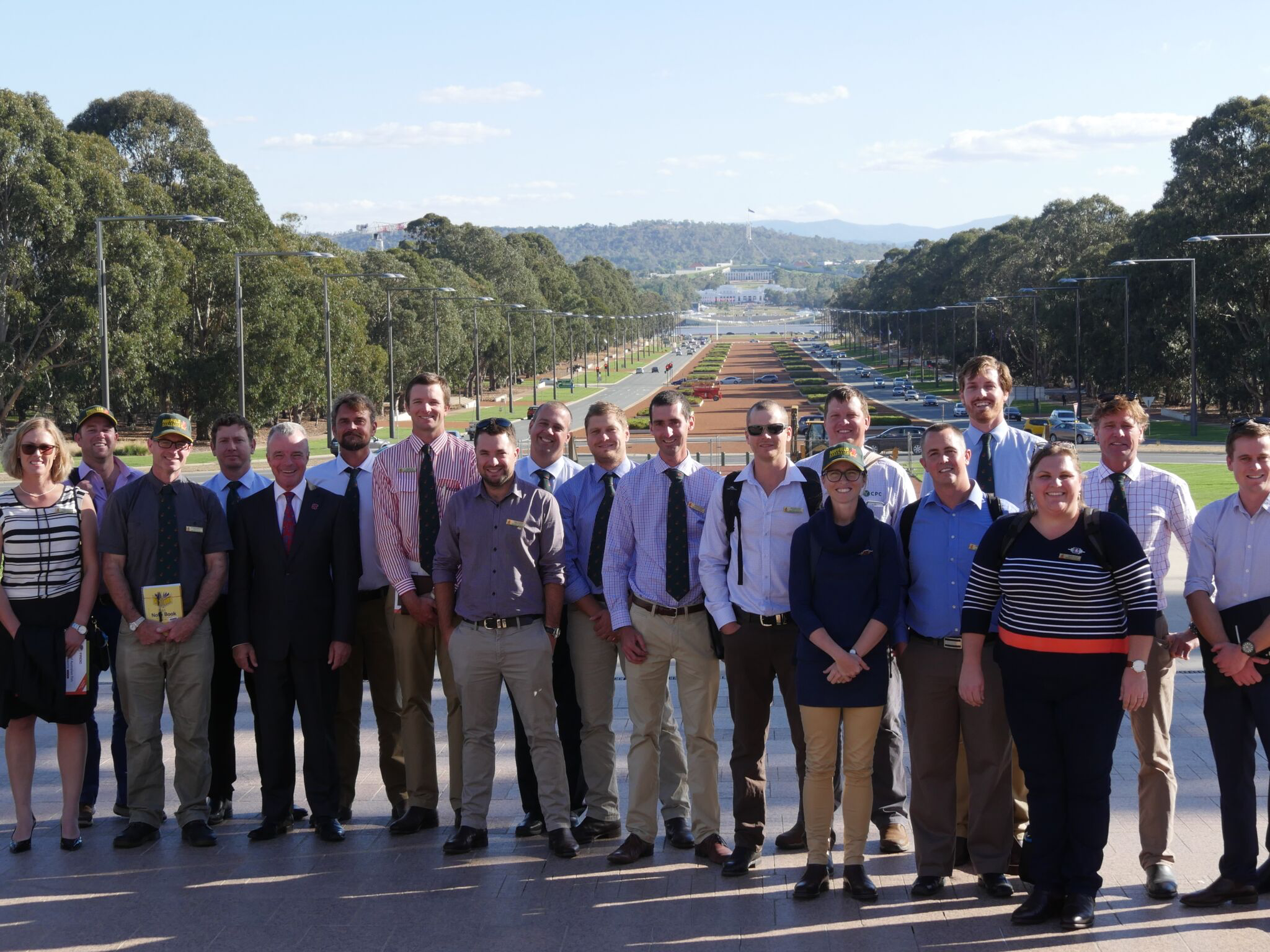Real blog number one. Still not really sure what I am trying to do here to be honest so you might all have to bear with me a bit. I guess what I want this to be is a bit of a summary of what I have learned through the Nuffield experience rather than a travel diary or something that frankly would be boring. Ideally, this will become a bit of a summary of the bigger "take home" things I've learned that others might find interesting. The less it is about me the better!
So Nuffield all of a sudden became a reality rather than some far off entry on Monday the 6th of March in my diary. The Australian Scholars met in Canberra for two days of briefing, speakers, a bit of cultural stuff and generally getting to bond as a group before the trek to Brazil. The group also attended a session of the ABARES conference that began on the Tuesday.
Over the two days, both mornings were spent with a range of speakers from a few of the RDC's (Research and Development Corporations - there's 15 covering most of Australia's ag industries), NFF (National Farmers Federation) and a few other ag organisations.
Aside from the few industry specific issues that were discussed they all had the same basic message. Investing in each industry with an eye to improving productivity and profitability. One without the other is a waste and so a whole approach is needed in agri-research - breeding and genetics, management practises, sustainability and environmental regulations etc all paint part of that picture. There is also the need to differentiate Australian produce in the global market on the basis of quality because for many of our industries we don't have the ability to compete with our global competitors on price/cost of production. How that is done is made both harder and easier by what is probably agriculture's biggest challenge.
Currently the world is in a time of peak interest in food and fibre. More people, more mouths to feed and with higher expectations of what they want to eat. So that provides a great opportunity to market Australia's produce as produce of higher quality to an increasingly receptive market that desires a higher quality product. But with an increasingly metropolitan population we also live in a world with peak ignorance of farming, where that food and fibre comes from and how it is that it came to sit on peoples plates or in their wardrobe. People want a better standard of produce to consume but don't care about where it came from. And that opens the door to people becoming misinformed by those organisations that oppose agriculture and actively promote mistruths. And there lies the threat. Think live export, attacks on shearing practises, concerns over GM crops voiced at the same time as concerns over high chemical use (because why can't they have their cake and eat it too!). All issues that very quickly become one sided as people find firm beliefs based on an hour of research on the ever reliable world wide web.
So the demand is for farmers to produce more, produce better, with less, more sustainably. Frankly it's what farmers strive to do every day anyway. But now the added challenge is proving it, if not to every self appointed internet professor then at least to our decision makers.
How that is done in Australia can be a bit ad hoc. Each industry has their peak representative body but within a lot of industries there can be further divisions of representation, each with their own committees, executives, members and each trying to maintain their own relevance. In Australian agriculture there are around 2000 industry bodies and that makes it hard when issues arise for the industry to have a clear voice. Not a single voice but a clear, coordinated voice is what is required to ensure that the opportunity to meet the changing needs of the global market can be made the most of while the associated threat of misinformed people directing policy under which farmers have to operate is kept to a minimum. The challenge for Australian ag is to find a way (or ways) to work in a more collaborative and coordinated fashion, both within and across different industries, to ensure the food and fibre that is produced is promoted as not just some of the worlds best but that it is produced with some of the worlds best management practises.
Post Canberra Nuffield heads to Brazil where the Contemporary Scholars Conference will be held in Brasilia for what should be an exciting week with 60 odd Scholars coming together. There'll be something on the wire after that.
Cheers, DK.

